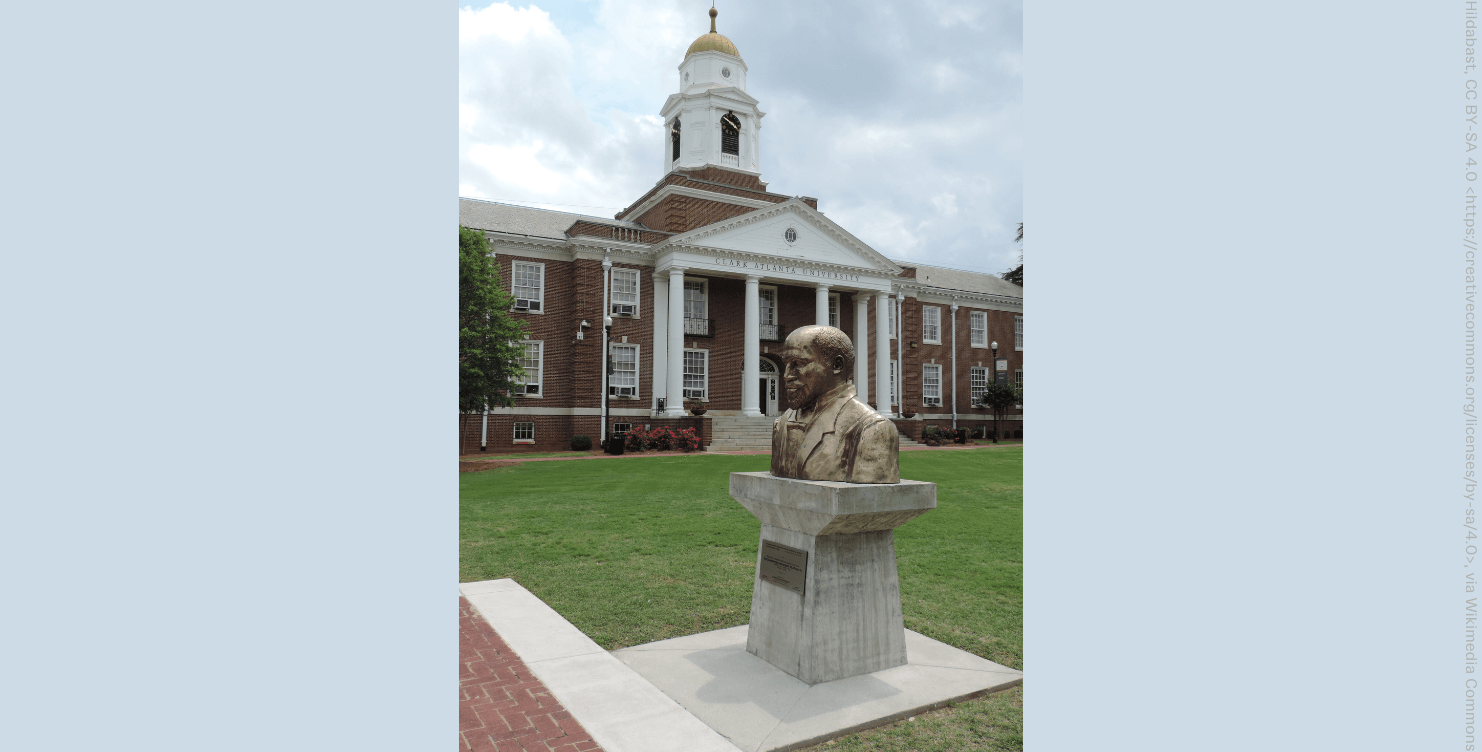KEY INSIGHTS:
- Clark Atlanta University received nearly $10 million from the National Science Foundation to increase the number of Black people getting data science credentials by at least 20,000 by 2027.
- It is the the first time any HBCU has received nearly $10 million from a particular NSF initiative.
- CAU President George French has already been in talks with industry and government partners, like GA Gov. Kemp, on ways they can partner.
A nearly $10 million research grant from the National Science Foundation (NSF), one of the most notable and prestigious research funders in the country is usually cause for celebration. But for Clark Atlanta University, which received such a grant at the beginning of August, it marks something particularly special for the Atlanta school — and HBCUs in general.
“It was exciting,” George French, president of CAU, told The Plug about his reaction upon hearing the news of the grant. “That’s one of the largest that we have received in recent memory.”
The National Science Foundation has awarded the university $9,998,289 over the next five years to establish the National Data Science Alliance (NDSA), with a specific goal to increase the number of Black people getting data science credentials by at least 20,000 by 2027. It has been around 20 years since CAU received a research grant this large, French said.
Black people are woefully underrepresented in the data science field. According to an analysis by The Plug of data from a recent NSF report, only 5.56 percent of computer/information scientists in 2019 were Black or African American. This is far below the 13 percent of the U.S. labor force that Black Americans constitute.
Data has also been used, whether intentionally or unintentionally, in ways that harm people of color. Increasing the number of Black people at the table can potentially address this problem and HBCUs can play a vital role in this.
Almost 18 percent of Black STEM bachelor’s degrees are awarded from HBCUs and one-third of all Black students who have gotten a doctorate degree earned their bachelor’s from an HBCU, according to NSF.
Preliminary findings from a nearly million-dollar research project conducted by professors at Howard, Claflin University and Jackson State University also show Black students who go to an HBCU are more likely to graduate with a STEM degree than those who attend a non-HBCU.
How the NDSA will work
The alliance plans to achieve its goal of 20,000 credentialed Black workers over the next five years in four ways:
- Expanding academic and research opportunities that engage HBCU students in data science
- Developing research in data science that reduces bias and promotes ethics, fairness and validity
- Fostering the growth of sustainable institutional capacity in data science at HBCUs
- Championing evidence-based inclusive practices and strategies that broaden the participation of HBCUs in data science
Talitha Washington is the principal investigator of this grant and the inaugural director of the Atlanta University Center Data Science Initiative (AUCDSI), a math professor at CAU and a former program director at NSF.
The AUCDSI was born out of a UnitedHealth Group five-year, $8.25 million investment made in 2019 to expand access to training for minority undergraduate students. It is unclear how or if the NDSA will work with the existing data science initiative. A spokesperson for the AUCDSI did not respond to questions from The Plug.
The NDSA will operate through three regional hubs led by Howard University, Fisk University and CAU. President French said the alliance will also work with CAU’s newly established Entrepreneurship and Innovation Center, which was born out of a $16.8 million, five-year grant the PNC Foundation, the main philanthropic arm of PNC Bank, announced last fall.
It is unclear, however, how the NDSA will be tracking the number of data science credentials that result from the alliance’s work, but French notes that the effort is being led by people who work with data for a living.
“That’s the good thing about dealing with data scientists,” he said with a smile.
A historic first for HBCUs
The grant was awarded through a particular initiative of NSF, the INCLUDES program.
In 2016, NSF unveiled what they called “Big Ideas” — 10 bold, long-term research and process ideas for America to stay a leader in science and innovation. One of those 10 ideas was the NSF INCLUDES program, an unwieldy acronym that boils down to providing grants to increase equity and inclusion of underrepresented groups in STEM.
For six years, NSF INCLUDES has been awarding funding that aligns with that mission. CAU’s grant is the largest of the at least 15 grants awarded to an HBCU under the INCLUDES initiative — the first time any of the schools have received nearly $10 million from the program.
French added that this grant significantly boosts CAU’s research funding. Right now, the school averages around $8 million a year in grants, but with the money from NSF as well as the outside investment the grant will attract, French expects an increase in the school’s research coffers.
“That $10 million is the tip of the iceberg of what we’re going to bring in,” French said.
The NDSA will work with government and industry partners to help reach its goals. CAU is already in talks with tech companies and French recently had a conversation with Georgia Governor Brian Kemp about the ways the state can partner with the alliance.
In five years when the grant term ends, French hopes that CAU will have seen increased enrollment in data science at the university, more PhDs graduated in the discipline and an increased number of faculty teaching data science.
But ultimately, the goal is to increase Black representation in data science.
“$10 million was a big deal for us, but more importantly, the opportunity to build the workforce for African Americans to actually engage in data science,” he said. “That’s a huge goal.”








